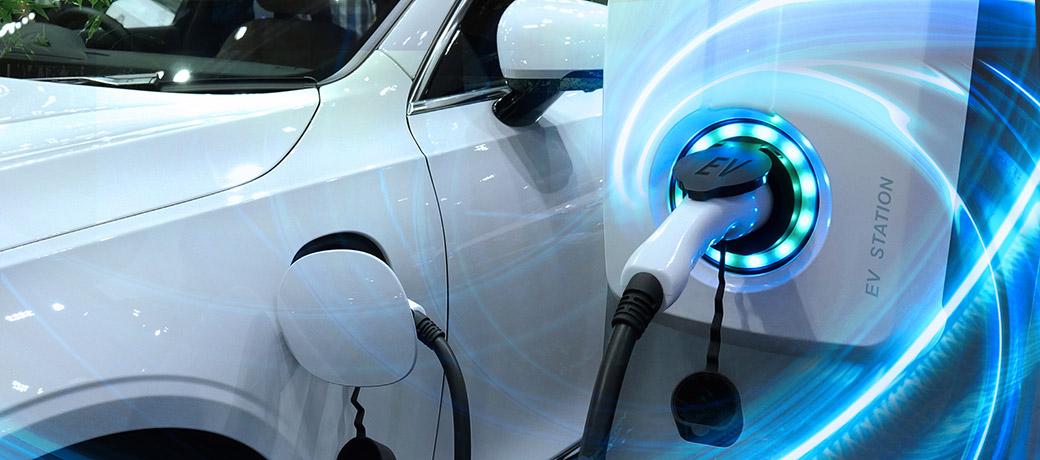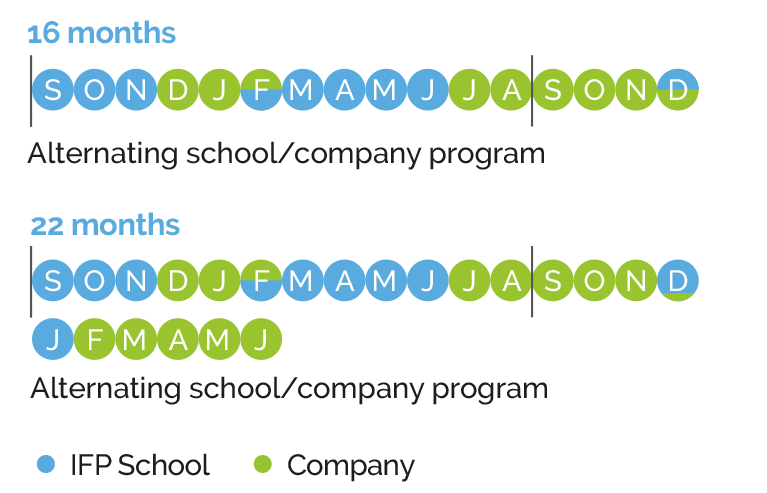
In brief
Presentation
For sustainable mobility on land, air and sea, every form of transport is impacted by environmental concerns. Energy efficiency of engines is achieved through electrification and hybridization, important subjects addressed in our Energy and Powertrains program, developed in close partnership with companies within the sector to address their need for expertise. This training will transform you into a versatile professional, able to support technological innovations that are critical to the energy transition in the transport sector. Choose a graduate program recognized by key players in the transport field!
The key points of the program
Career prospects for graduates
Program & planning
Program
- Introduction to engines
- Energy conversion
- Combustion
- Engine technology
- Air and fuel supply
- Energy, economic and environmental challenges (regulations, pollutant formation, pollutant aftertreatment, lifecycle analysis and CO2 emissions)
- Innovative engine systems project
- Engine and vehicle testing
- Powertrain control and on-board energy management
- Vehicle integration and energy efficiency - Transmission, electrification, hybridization
- Aircraft engines
- Marine and off-road engines
- Experience Sharing Module
Planning
The two examples of schedules shown below correspond to the most frequently encountered cases for students in the program:
- a 16-month alternating school/company program for students with a 5-year engineering degree,
- a 22-month alternating school/company for an engineering student in the penultimate year of a major European school or university having signed a double-degree agreement with IFP School.

There are other possible cases, such as a continuous 16-month program for a student with a 4- or 5-year engineering degree.
Career opportunities
Businesses
- Automobile and truck manufacturers
- Other manufacturers (aeronautics, marine, off-road,generators, etc.)
- Equipment suppliers
- Engineering and R&D centers
Jobs
Here are a few examples of themes on which an Energy and Powertrains engineer may work:
Functional design engineer
- Synthesis of longitudinal parameters (vehicle performance, consumption, emissions) to define an engine-gearbox pair and the related specifications;
- Dimensioning of the air loop and engine charging to achieve the required engine performance (functional specification of the turbocharger, intake divider, valve lift profile, EGR, etc.)
Mechanical design engineer
- Mechanical modeling and design using CAD (cylinder head, cylinder block, piston rod, exhaust gas recirculation / EGR valve, injector, transmissions, etc.)
- Supplier tracking for the development and standard production of components (piston, air filter, EGR valve, injection pump, turbocharger, actuators, clutch)
Engine control engineer
- Development of drive control strategies of a hybrid chain, simulation of strategies on a chain model, rapid prototyping on a test bench or HIL (Hardware In the Loop)
- Development of air loop control strategies (low- and high-pressure EGR, turbocharger, etc.)
Development engineer
- Driveability calibration (tip in and tip out, gear change, vehicle takeoff , etc.)
- Calibration and validation of engine starting in extreme climatic conditions
- Calibration of engine control operating strategies (regeneration of particulate filter, idle control, injection pressure, etc.
Funding & sponsorships
Typical class profile
Students in this program are almost all sponsored by companies (through apprenticeships, sponsorships or seconded professionals) that finance their living expenses during the academic period and contribute towards their tuition.
Sponsoring opportunities
Have a look at a selection of offers proposed by our partners.
Main sponsors
Among these companies, the following have been IFP School partners in recent years (non-exhaustive list):
- Airbus Helicopters
- Alpine Cars
- Alpine Racing
- Alstom
- Arquus
- AVL
- Bertrandt
- Bosch
- Delphi
- EDF-PEI
- EMC-MTT
- FEV
- Groupe Renault
- HTI Automobile
- IFPEN
- Iveco
- Liebherr
- Man-ES
- Mann Hummel
- Marine nationale
- Safran Helicopter Engines
- Saft
- Stellantis
- Symbio
- TotalEnergies
- Valeo
- Vitesco
- Volvo Powertrain